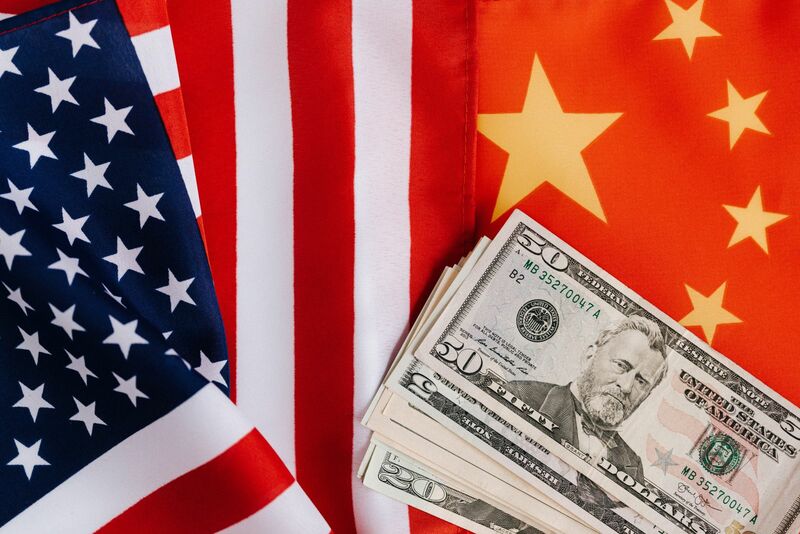
Shares of China’s Alibaba Group Holdings (BABA) tumbled more than -10% last Thursday and Friday after the company canceled a spinoff of its cloud division, citing U.S. restrictions on advanced semiconductor sales to China. Tencent Holdings (TCEHY) also fell more than -3% last Friday, despite reporting better-than-expected quarterly earnings results, after it warned of the impact of the U.S. chip trade curbs. The latest developments offer a fresh reason for foreign investors to refrain from investing in Chinese stocks.
Alibaba’s core business of selling goods online to Chinese customers was weaker than expected in Q2 amid China’s sluggish recovery. In addition to scrapping the spinoff of its cloud business, Alibaba also said it was suspending a listing for its grocery business Freshippo, clouding the near-term outlook for the company. JPMorgan Chase said, “We think the outlook for domestic e-commerce growth has weakened, and the amount of value-unlocking capital market activities has decreased,” following Alibaba’s results.
Despite some big Chinese technology companies reporting earnings that exceeded estimates, including JD.com (JD) and NetEase (NTES), concerns remain for the sector. Tencent Holdings failed to sustain a rally last Wednesday when it reported better-than-expected earnings, as analysts pointed to underwhelming advertising revenue and less-than-expected game sales. Also, worries over domestic growth are limiting rallies in Chinese technology stocks. Jintong Private Fund Management said, “No matter what the earnings look like, the bottlenecks for these firms is that they’ve reached their limit in terms of domestic growth, and they’ve yet to find a large source of international growth.”
Even with strong earnings and improving fundamentals, confidence in Chinese stocks remains subdued. China’s economic malaise and more frugal consumer spending remain concerns, while the trade spat with the U.S. has hindered shifts to more cutting-edge technologies. Confidence in Chinese tech stocks had improved briefly earlier this month as the Hang Seng Tech Index rose nearly 10% in the first half of November as Chinese authorities eased regulations on games and corporate cost-cutting boosted hopes for positive earnings surprises. However, the mood quickly reversed on concerns that Chinese firms would suffer from the U.S. chip export restrictions to China.
On the positive side, valuations for big Chinese tech stocks have fallen to near bargain levels, with the Hang Seng Tech index trading at 19 times forward earnings estimates, well below the five-year average of 28 times. However, the likelihood of foreign investors jumping into Chinese equities in the near term remains subdued. Three-fourths of Asian fund managers polled by Bank of America maintain a net underweight position on Chinese stocks and expect the long-term derating of Chinese stocks to continue. GAM Investment Management said, “Large tech names normally need international flows to move the stock prices, but many international investors are still focusing on macro and geopolitics and no longer look at company’s fundamentals in the short term.”
On the date of publication, Rich Asplund did not have (either directly or indirectly) positions in any of the securities mentioned in this article. All information and data in this article is solely for informational purposes. For more information please view the Barchart Disclosure Policy here.






